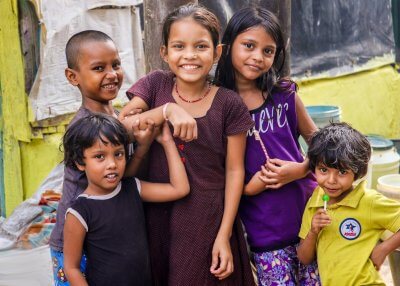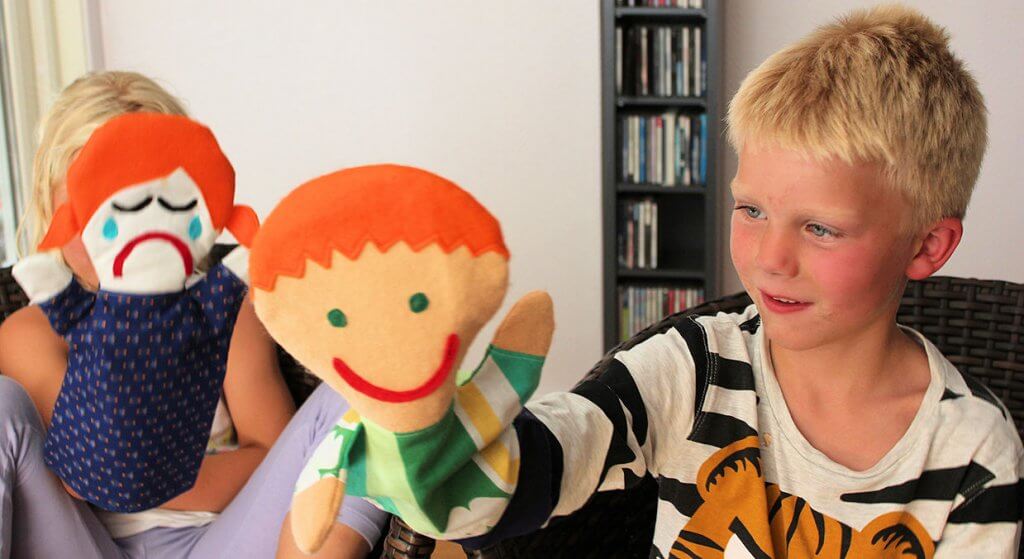
Do you describe your sons, daughters, or students as caring children? In today’s divided political climate, does it matter if children and teens find meaningful ways to connect with and care about others who are different from themselves?
The importance of educating and raising caring children was brought to national attention in 2014 by the Making Caring Common Project at the Harvard Graduate School of Education. At that time, a large majority of diverse young people reported valuing achievement and happiness over caring for others, and that parents reinforced this message through their own focus on a child’s grades and achievement.
This research prompted many to ask: If we are not raising caring children, how will they grow to become engaged, compassionate citizens? According to research by Dr. Joel Westheimer and Dr. Joseph Kahne, for children to meet the minimal requirements for responsible citizenship, they must have good character, including empathy for others. They must also have core social skills, like the ability to be curious, creative, and self-aware.
Raising caring children who become engaged citizens has been at the heart of my own work and research for the past decade, and is at the core of The Compass Advantage framework. As a student and teacher of positive youth development and an advocate for the integration of social, emotional, and cognitive learning, I am delighted to share information about a new program that offers evidence-based strategies designed to help parents, teachers, and mentors engage in conversations that facilitate healthy development.

CosmoKidz Fosters Compassionate & Caring Children
I have been following the development of CosmoKidz for some time. A decade in the making, with successful piloting in schools, it is now available to teachers and parents everywhere. I was interested to learn more about the history of this program and how to use it, so I posed the following questions to its developers, educator Kim Pearce and therapist Marit Eikaas Haavimb, both affiliated with the CMM Institute for Personal and Social Evolution.
What is CosmoKidz?
CosmoKidz is a set of educational activities that facilitate meaningful conversations between adults and children about issues children find challenging in their social worlds. It fosters caring children and their capacities on different levels:
- Social & emotional development (personal)
- Compassion, kindness & respect (interpersonal)
- Citizenship & dialogic deliberation (systemic)
- Environmental Connection (intersystemic)
All of the CosmoKidz activities include a detailed User’s Guide to provide guidance on various ways to creatively and meaningfully engage children in a variety of conversational topics.
With regular practice, children develop skills and abilities that become part of their “default” way of relating to others without the help of an adult.
The ongoing pandemic has forced many teachers to reimagine their classrooms as they make a greater move into digital spaces. As myriad changes are occurring in children’s worlds, social emotional learning is needed now more than ever.
Through digitalized CosmoKidz versions and Google CosmoKidz classroom, teachers can offer students the opportunities to speak, listen and build relationships, while teaching core subjects. Topics include conversations related to illness, loss, and change as well as many other themes that nurture caring children. Braiding CosmoKidz lessons into any school subject or happening in the children’s relational experiences is a perfect example of teaching the whole child, beyond academics.
CosmoKidz is designed for many uses. See the CosmoKidz website for additional information and how to use scenarios and puppets at home and in the classroom to foster the development of compassionate, caring children.
How did CosmoKidz get its name?
The term “CosmoKidz” grows out of “Cosmopolitan Communication.” Among other things, this is a form of communication that suggests that everyday differences between people can be a starting place for deeper understanding, trust, and respect. The CosmoKidz activities are one way to help children learn how to understand diversity, make meaning of their role in shaping relationships, and develop valuable skills that help them explore their own personal and social worlds.
How does CosmoKidz support the research in child development?
The Cosmo line of activities are based in the communication theory, the Coordinated Management of Meaning (CMM). CMM posits that our social worlds are made in the things we say and do, and the theory provides models to support people in co-creating generative social worlds. The Cosmo conversations and activities help children and adolescents develop the skills and abilities that are known to create socially and emotionally healthy, competent, and caring children that grow into engaged citizens.
We know from research that children who learn these social-emotional skills do better in school and life. There is mounting research on the role social media plays in adolescents’ levels of depression, loneliness, and anxiety. Cosmo conversations and activities provide quite different ways of relating that build connections and bridges between children and between children and adults.
Beginning in 2014, the CMM Institute has partnered with the Kettering Foundation, and in 2017 with the Louisiana Children’s Trust Fund, to research how CosmoKidz conversations affect children’s social-emotional development, both in the classroom and at home. The research findings suggest that Cosmo conversations increase self-awareness; improve communication skills; foster compassionate, caring children; and improve class/home climates and school culture. Adults working with the material report that the conversations have changed their own lives too. They are much more aware of their own communication habits and practices and they are changing how they relate with their students, their own children, and other adults in their lives.
How do parents and schools foster caring children through CosmoKidz? What age-groups can participate?
The idea of CosmoKidz is based on simplicity and ease of use. Conversations are designed for different developmental levels and can occur with one child, a small group of children or adolescents, or a large group.
Raising Caring Children: Ages 4-8

The CosmoKidz activities for young children consist of thirty-one original digital topics with new topics added every year. Each topic includes a scenario and questions with possible role play situations. Scenarios for young children evolved from focus group conversations and stories with children ages 4 to 8 as being difficult to manage in their own social worlds.
Hand-puppets, like the ones pictured above, are also available to engage young children in the scenarios and several versions of a SOAR song-and-dance helps children remember what it is all about. SOAR stands for, “Sense what’s around you; Open your hands to help others; Act with kindness; Respect other people.”
Nurturing Compassion: Ages 8-12
Two different CosmoTweenz digital activities are available for 3rd through 6th grade students. One of the CosmoTweenz activities is called “Three Choices…and then What Happens?” There are fifty-one challenging scenarios in three categories of school, friends, and home. Every scenario has come from 8-12-year-old children who were interviewed from the U.S., Norway, United Kingdom, and Romania.
Tweens imagine how to act into the challenging situation in three different, but productive, ways and then discuss what would most likely happen next. These conversations enable children to talk about challenging situations that they do not normally talk about and to work together to identify productive ways to act into the situation to help make a better outcome.
The second Tweenz set of activities is about building Environmental Awareness. There are 24 scenarios aimed at helping young people bridge their sense of awareness and perspective taking from people to other living things. They are arranged in three categories: Noticing Your Surroundings, Making a Change at Home or at School, and Connecting to Others. The goal is to be honest in representing environmental issues as complex without inducing hopelessness. The scenarios function as conversation starters to engage with this complexity, expand empathy and give young people opportunities to act.
The CosmoKidz digital series currently covers the age-groups from Pre-school to 6th grade. The CMM Institute is currently working with 5 Teen/Young Adult CMM Fellows from three countries who are working on the development of activities for teens. These activities are projected to become available in late 2023.
Learn How You Can Nurture Caring Children at Home or School
Visit the CosmoKidz website for additional information, testimonials, videos, research papers, purchase information, and a way of contacting the developers if you have questions. Fostering compassionate, caring children is possible with the right communication strategies!
Featured Image by Loren Joseph
Related Articles You May Enjoy
(The author has no affiliation with CosmoKidz and does not receive referral fees for sales of products.)
Published: August 27, 2022




